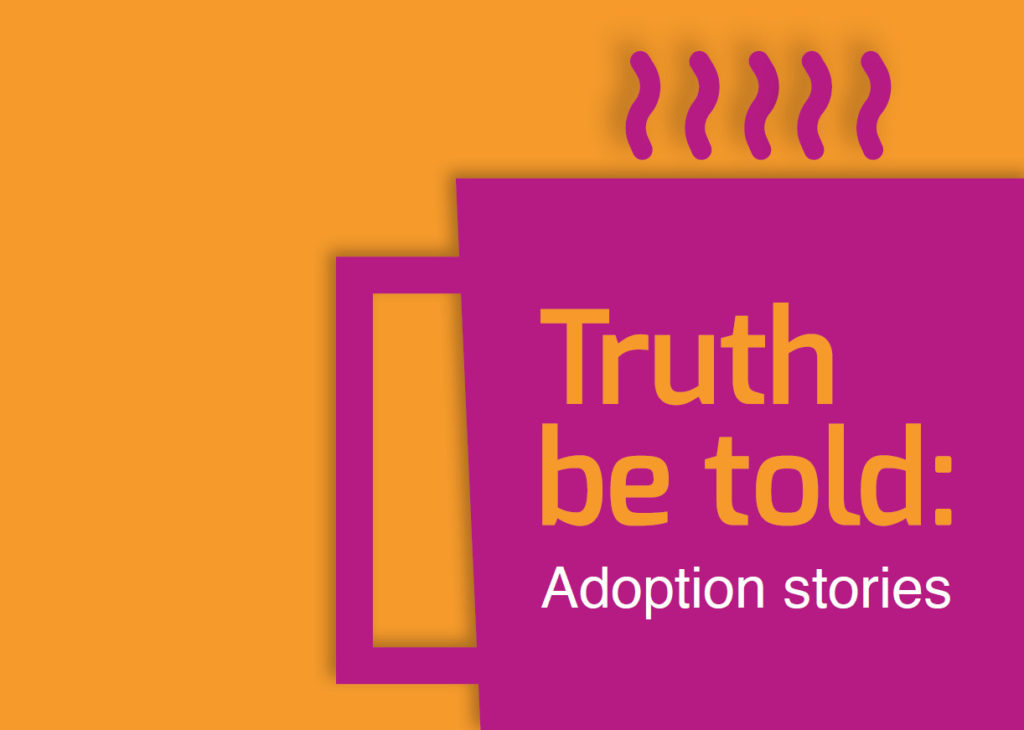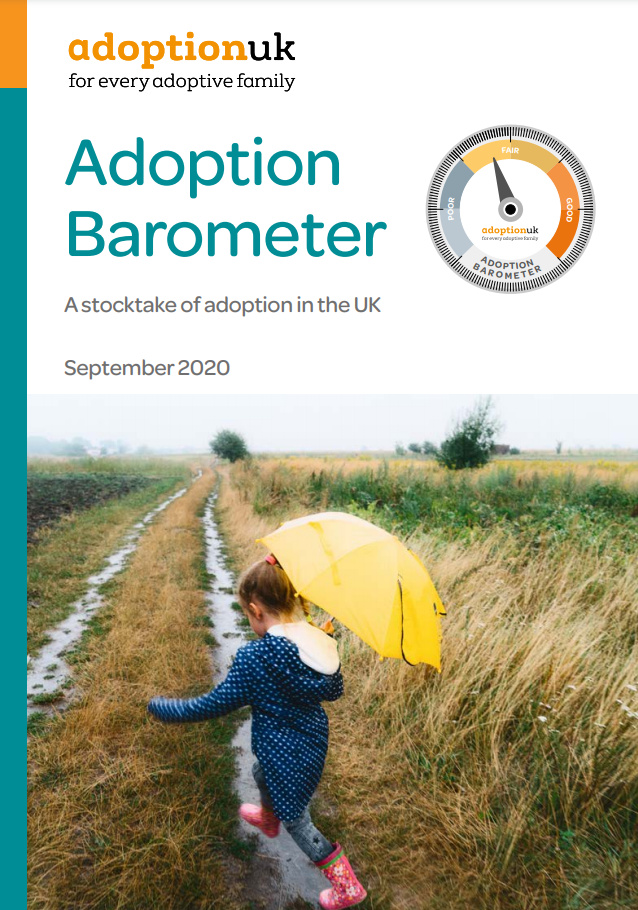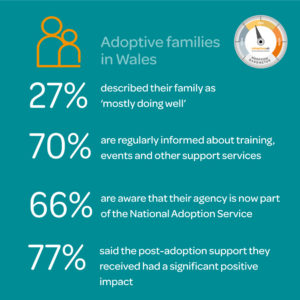Wales comes out top in UK wide adoption survey, but more support still needed for vulnerable children, report finds
Alongside identifying an improving picture in many respects there is still evidence that the lives of some of the UK’s most vulnerable children are being affected by missed opportunities to provide them with timely and adequate support, a new report reveals today.
The Adoption Barometer, published by charity Adoption UK, describes the dramatic impact the right support can have. Now in its second year, the Barometer is based on the biggest ever survey of adopters. This year, 5,000 people responded to the survey, 361 of which were in Wales.
The Adoption Barometer also assesses the government policies that regulate adoption. Welsh policies scored best, with three areas of policy scoring ‘good’ – Approvals and Matching, Newly Placed Adopters and Established Families. Policy relating to finding families for children scored best across the board.
However, all nations scored poorly in at least one area of policy. Policy relating to Fetal Alcohol Spectrum Disorder (FASD) scored worst, with all nations assessed as ‘poor’, and adopter experiences of children with or suspected FASD was also ‘poor’ in all nations.
There has been progress in Wales since last year’s Barometer, building on the improvement seen since Wales implemented its National Adoption Service (NAS). In June 2019, there was a £2.3m investment in adoption services by the Welsh Government. In partnership with third sector organisations some of this funding is being used to provide new services including the Therapeutic Education and Support Services in Adoption (TESSA) and a new young people’s service. Respondents in Wales were considerably more positive about their experiences of accessing support during 2019 than they were the previous year.
One of the main themes to emerge across the UK is the failure in diagnosing and treating brain damage caused by children being exposed to alcohol in the womb. The report reveals more than one-in-four adopted children in Wales (28%) are either diagnosed with or suspected to have FASD. 53% of families polled in Wales had waited two years or longer for a diagnosis, and 68% felt healthcare professionals lacked even basic knowledge about the condition, even though FASD is more common in the general population than autism.
Adoptive mother Joanne, from South Wales, said: “We were told our son may have FASD when he came to us at four, but were told we’d never get a diagnosis as he did not have the associated facial features. He soon became violent and aggressive. He’d erupt for two hours every night when we put him to bed. He’d throw things, hit, kick, scratch. I’ve had three black eyes and I’ve got a scar on my chin from being hit with a candle. We saw GPs, Child Adolescent Mental Health Services (CAMHS), a neuro developmental team and a child psychiatrist before a doctor finally diagnosed our son with FASD. We were discharged the same day without the offer of any support.”
Around three-quarters of adopted children experienced violence, abuse or neglect while living with their birth families, often with life-long impacts on their relationships, their health and their ability to learn. Despite the considerable challenges, the report shows that adopters in Wales remain positive and resilient – 75% would encourage others to consider adoption.
But failures in policy and practice and missed opportunities to intervene mean that problems often build into a crisis. Almost than half (48%) of families with older children report severe challenges, such as being drawn into criminally exploitative behaviour, including child sexual exploitation and county lines activities. The vast majority (66%) of respondents from Wales with school aged children anticipate they will leave school with few or no qualifications because they lacked the right support.
Author of the report Becky Brooks said: “It is morally and economically imperative that adoptive families are given the right support from day one. Yet 68% of new adoptive families who responded to the survey had no support plan in place. The cost to the child, the wider family and society when an adoptive family falls apart, is unacceptable.”
Suzanne Griffiths, National Adoption Service for Wales Director, said: “The Barometer is a welcome sense check from adoptive families as to where we are as a service. The findings encouragingly identify that improvements have been made. They also reflect where we know there is more work to be done, specifically access to adoption support and services for adopted children and young people.
“We have made significant investment into these areas over the past year with the support of £2.3m adoption support fund from Welsh Government and we look forward to future reports to see the impact this makes.
“Overall, there are some very positive messages in the report to celebrate and we are pleased to see that adoption in Wales is in a good place in terms of its improvement journey. This is exactly what NAS was set up to achieve.”
The Adoption Barometer calls on the governments in all four nations of the UK to provide detailed therapeutic assessments for every child before they arrive in their new family, with up to date support plans to be maintained into early adulthood.





